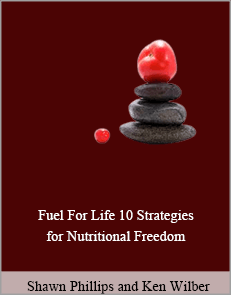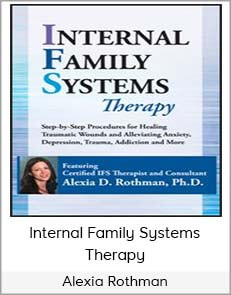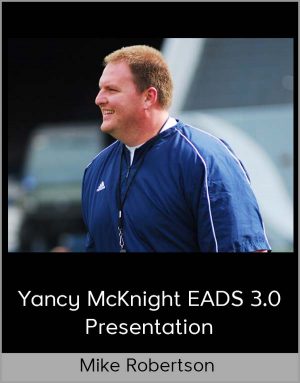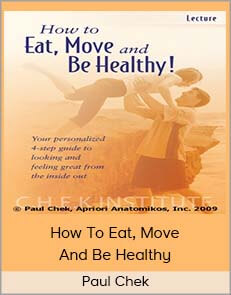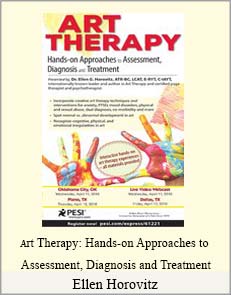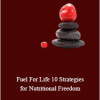Shawn Phillips and Ken Wilber – Fuel For Life. 10 Strategies for Nutritional Freedom
$35.00$99.00 (-65%)
As a result, our population is in many ways becoming both fatter and stupider, as our essential nutritional needs continue to be neglected in mainstream society.
SalePage
Shawn Phillips and Ken Wilber – Fuel For Life. 10 Strategies for Nutritional Freedom

Check it out: Shawn Phillips and Ken Wilber – Fuel For Life. 10 Strategies for Nutritional Freedom
Shawn Phillips and Ken Wilber talk about one of the most important (and least discussed) components of integral living: food and nutrition. Let’s face it: it’s hard to eat right. With so many different dieting fads and follies in our culture, it can be difficult to find straight answers about what you should and should not put into your body, which can make improving your own eating habits a significant challenge.
And yet there is a very real nutrition crisis in the world—particularly in the U.S., where 49 out of 50 states have an obesity rate exceeding 20% of the general population (stay healthy, Colorado!). Sadly, our culture has proven itself to be very poorly equipped to deal with this crisis. Consider, for example, the fact that not one single medical school in the country teaches nutrition as a basic medical science. As a result, our population is in many ways becoming both fatter and stupider, as our essential nutritional needs continue to be neglected in mainstream society.
This is what makes Shawn’s approach so refreshing. For him, eating right begins with cultivating some basic nutritional awareness, touching into how our food actually makes us feel on a physical, emotional, psychological, and even spiritual level. Once we have done some groundwork to help stabilize our personal relationship with our eating habits, the real work of changing our actual day-to-day lifestyle can find much more traction—and yield much greater benefit—than ever before possible.
It may seem interesting that Shawn frames the issue of food and nourishment as “nutritional freedom”. But that is exactly what it is—freedom to make the very best and most informed decisions possible. Even describing our approach to nourishment as a sort of “freedom” offers a much-needed break from “diets” and similarly restrictive language. After all, integral living is not about limiting or taking anything away from our lives—quite the contrary, it’s about enhancing our lives, increasing our awareness, and maximizing our happiness. It’s about making ourselves healthy in every aspect of our lives—and nutritional freedom is the cornerstone to any healthy and happy life.Of course, many of us already think we have this freedom. And to some degree, we do. In this crazy and chaotic world, one of the greatest forms of control we have is what we decide to put into our bodies. We are free to choose what to eat, and freedom is by definition the power to make a choice. And at this time in history, we have more options than ever before—we can purchase halibut in Colorado, we can find strawberries in the middle of winter, and we can sample delicacies from all over the world at the local market. However, when it comes to our own relationship with food, our choices are often more limited than we realize. I can walk into a supermarket, and I am free to put anything I want into the basket—but what I end up walking out with is subject to a countless variety of unconscious patterns, habits, and influences, all restricting my freedom to make choices that are in my own best interest, time and time again.
For one, our relationship with food is extremely emotional—perhaps more so than any other relationship in our lives. Not only does our nourishment directly regulate and influence our emotional states, but we also use food to alter, avoid, and augment our emotions, often creating a series of negative feedback loops that keep us locked in bad moods and bad habits. As Shawn says, too often we live to eat, instead of eating to live. These unconscious patterns are often made worse by our parents rewarding us with too many candy, cookies, and treats when we were children, which can create an unhealthy emotional relationship with food before we can even form our first words. These conditioned responses can be exceptionally difficult to get a handle on, precisely because they are so often pre-verbal in their origins.
Cultures also have tremendous sway upon our eating habits. Our appetites, palates, and dining customs are all dramatically influenced by the people around us—our families, our friends and neighbors, our ethnicity, our nationality, our religion, and so on. There are many different interpretations of “health”, and many different sorts of meaning-making processes around food and nutrition, all of which color our overall relationship with food. For example, consider the reaction many in the Tea Party have had to Michelle Obama’s Healthy Food education campaign, perceiving it as an attempt to actually restrict their freedom by telling people what they should and shouldn’t eat—when of course, she is trying hard to expand our freedom by educating the population and helping them to make healthier choices. (This would be comically ironic if it weren’t for the epidemic of morbid obesity that currently plagues the United States.) Cultural attitudes like these exert a huge influence upon our daily eating habits, which is how the deep-fried Twinkie has become a uniquely American symbol of nutritional freedom.
Then we have the socio-economic pressures bearing down upon our daily nutrition choices—including the price of healthy vs. unhealthy food; the health and treatment of livestock; the presence of pesticides, poisons, and artificial hormones; the seemingly ubiquitous infusion of high fructose corn syrup into everything we eat; the lack of time many people have to prepare healthy meals (especially in two-income families); the remarkable conveniences of fast food; the thousands of ad impressions that are both whispered and shouted into our consciousness every day; the Food Lobbies that are incessantly working to tip the economic scales toward corporations like PepsiCo, Sysco, and DuPont…. And the list goes on and on, as the invisible hand continues to find new and novel ways to shovel more and more garbage into our mouths.
Each of these dimensions—psychological, cultural, and social—are affecting our daily nutrition choices, often preventing us from getting the energy we need and driving millions of us into malnourishment and obesity. Our nutritional freedoms are being restricted on all sides, whether we know it or not. And here lies the key: if you want the freedom to make the healthiest possible choices for yourself and your family, it is better to know than not.
Awareness is everything. Which is exactly what this dialogue has to offer—ten easy ways to increase your awareness of your relationship with food, which will dramatically increase your freedom to make healthier choices, thereby increasing your overall energy, vitality, and well-being in every aspect of your life.
